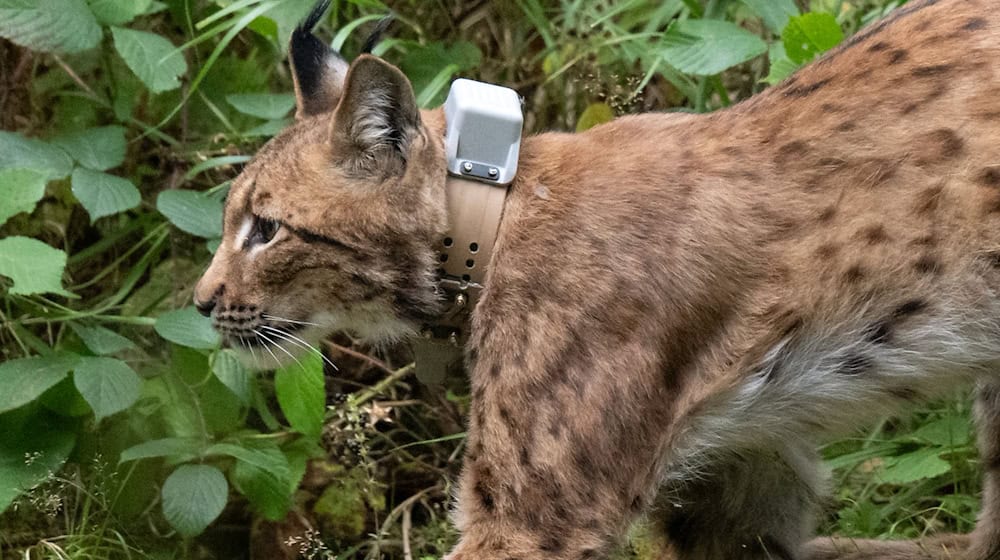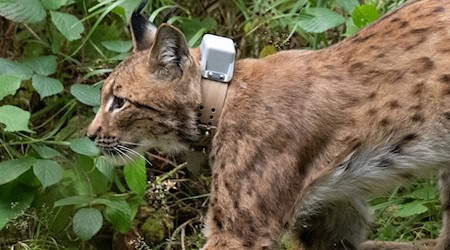The female lynx Alva, which was released into the wild in the Westerzgebirge in spring, is to be captured due to an infection with feline leukemia. A health check will clarify Alva's infection status, according to the State Office for Environment, Agriculture and Geology (LfULG).
If the animal is not contagious, it could be released again. This would be important for stabilizing the lynx population, as Alva is a sexually mature, experienced mother. However, if she is infectious, the experts believe she will have to be put down.
Virus rare in lynxes
The feline leukaemia virus, as the infection is scientifically known, is rare in lynxes and is only infectious for cat species. According to the LfULG, it can only be transmitted through direct contact with an infected animal, for example through bites, mutual grooming or mating. The infection can take different courses and, in the worst case, lead to death.
The aim is to capture Alva before the mating season begins at the end of January in order to prevent the virus from spreading to the rest of the lynx population. However, there is still no permit for the capture, the necessary applications have been submitted.
Infection probably shortly before capture in Switzerland
Alva comes from the Swiss Jura. She was captured there at the beginning of March and released into the wild in Saxony after a three-week quarantine and having successfully passed all health tests.
Three tests for the feline leukemia virus directly on capture, during the quarantine period and on release came back negative. Only a blood sample taken in Switzerland for research purposes on the last day of quarantine and only analyzed later revealed the infection, as Maik Denner, Head of the Species Protection, Floodplains and Moors Department at the LfULG, explained. This suggests that Alva only became infected shortly before she was caught. Denner spoke of a "totally improbable situation".
Species conservation project "RELynx"
As part of the species conservation project "RELynx", Saxony plans to reintroduce 20 lynxes by 2027. The project will use wild-caught animals, mainly from Switzerland, and breeding animals from zoos. In addition to Alva, one other cat and three males (Kuder) have been released into the wild so far, but the male Anton died in a traffic accident. Alongside Thuringia and Baden-Württemberg, Saxony is the only federal state to reintroduce the endangered species.
Copyright 2024, dpa (www.dpa.de). All rights reserved




